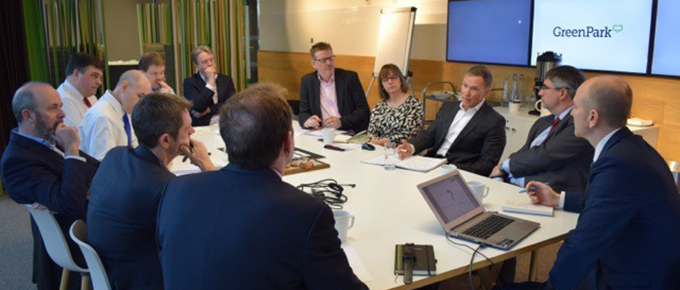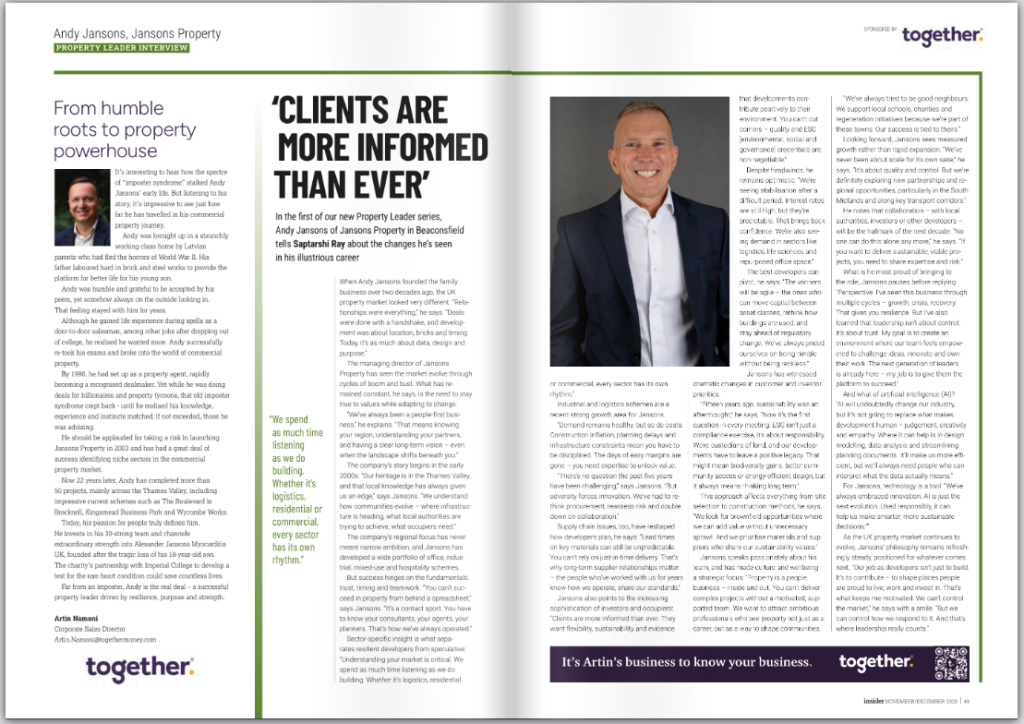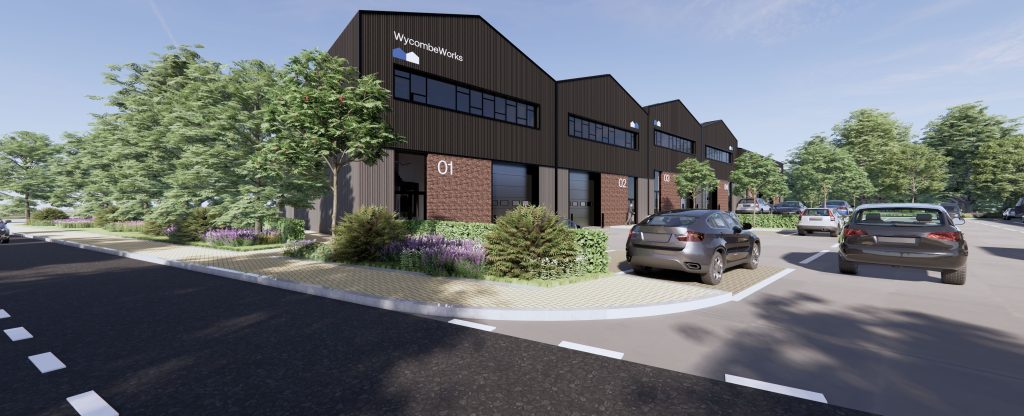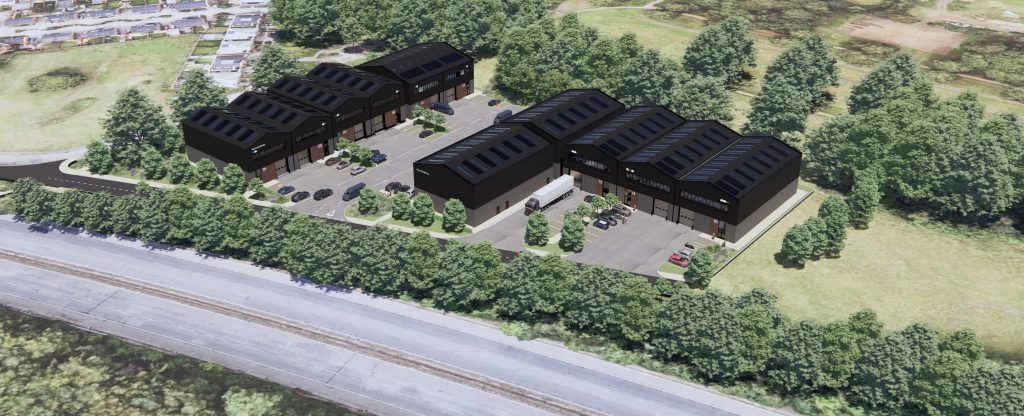
Andy Jansons was the only developer to take part in round table debate to discuss some of the key concerns around property in the Thames Valley.
UK Property Forums, publisher of the online newsletter the Thames Tap, put together an editorial board, with a diverse range of professionals to discuss subjects ranging from the market over the last few years to issues around growth and infrastructure.
The meeting gave Andy the opportunity to raise increasing concerns about land supply for industrial developments.
The debate involved:
Matthew Battle, managing director, UK Property Forums (meeting chairman)
Scott Witchalls, partner, Peter Brett Associates
David Wright, occupier
Bill Hicks, head of stakeholder engagement, TVB LEP
Robert Lynch, partner, Harrison Clark Rickerbys
Hugh Blaza, managing partner, BrookStreet des Roches
Richard Stacey, partner, Systra
Kim Cohen, partner, Barton Willmore
Andy Jansons, managing director, Jansons Property
Paul Lewis, Thames Valley director, Segro
Charlie Nicholson, partner, Vail Williams
Charlie Nicholson began the event with a presentation on the current market, reporting on the trend of occupiers moving to the Thames Valley from West London.
But Andy pointed to a less dynamic trend of recent years.
He said: “That wasn’t the case in previous years through was it? It was more of local companies moving around to different buildings.”
Mr Nicholson backed that up with statistic and said 85 per cent of take up was people moving within a ten-mile radius of their existing stock. He added: “The vast majority of moves are just people moving within the Thames Valley.”
Another striking statistic from Mr Nicholson’s talk was that five million sq ft of office stock had been lost through conversions to residential under Permitted Development Rights.
This, said Andy, was a possible explanation for the shortage of options reported by Mr Wright when looking for a new location.
Andy said: “If you take Charlie’s point about five million sq ft taken out in the last three years, dare I say for some of those occupiers who don’t want to pay the headline rents, the £30s plus, the secondary stock has been taken out of the market.”
Mr Nicholson agreed, highlighting Dell at Bracknell where a neighbouring building could be converted under PD which the computer giant does not want on its doorstep.
Furthermore Andy saw PD even putting pressure on scarce industrial land: “I see it driving some office occupiers into industrial estate locations they previously wouldn’t have considered but you haven’t got that secondary office stock always available now.”
Mr Lewis agreed and offered an example of an occupier wanting space but now considering converting an industrial building. He added: “That unplanned, un-thought out development, I think down the line could have consequences.”
Land in London said Andy, brought about a curious perception issue where the M25 was seen by occupiers as a barrier. Inside it was perceived as London while outside it, was out of London, leaving an image gap between neighbouring towns such as Slough and Uxbridge which are close by but on either side of the motorway.
But he welcomed the brighter news that Mr Lewis was able to confirm industrial schemes being brought forward by Segro in Bracknell and Slough.
He said: “From my point of view that’s great to hear because if I had to summarise the industrial warehousing market – there is a drastic shortage of space, really drastic.
“A big bugbear for me is; ok we know we’ve got issues with housing but we are not seeing any land allocated or released by local authorities, in our whole Thames Valley area in my view, for manufacturing or warehousing and there’s a major demand.
“And I am also seeing occupiers being pushed further out down, not so much down the M4 but certainly the M40 to Bicester and up to Aylesbury because of the high rents that are being achieved, because of the lack of stock. We need a lot more land for industry and warehousing – lots.”
The meeting discussed transport and devolution which had been taken up in other regions. There was agreement that the Thames Valley needed to have more defined boundaries and to get back its lobbying strength.
In summing up, each delegate was given their chance to put forward a key concern.
Andy said: “I go back to what I said earlier – industrial, distribution, warehousing. I worry where small businesses are now going to go, I really do. I think that is a big issue for the Thames Valley area.
“Small industrial units aren’t being built. You’ve got some in Slough but in terms of speculative, or new schemes they are just not being built. It’s not all about the office market although it does get the headlines.”
In his own summing up, Mr Lewis said he fully echoed Andy’s comments. He added: “I wondered whether to say anything or just sit here quietly and Andy and I be smug, because we started off with a presentation about the office market and it’s been a bad year.
“Well the industrial market vacancies have never been so low. We (Segro) have been building but we have no new space available. It’s just been taken up and there is limited land coming through so my watch point for the year would be around planning.”











